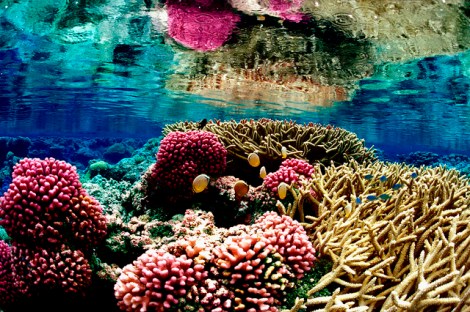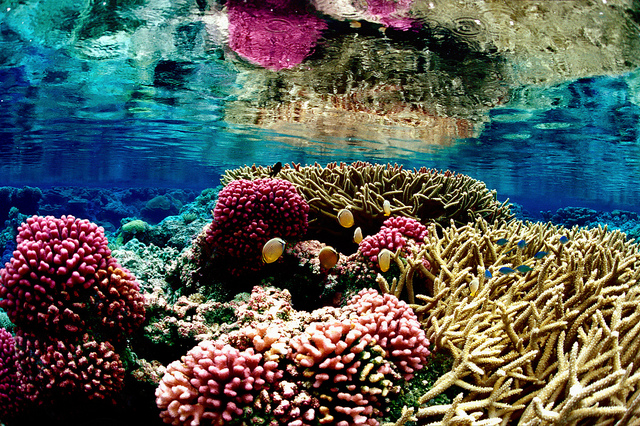
Jim Maragos/U.S. Fish and Wildlife Service.
Coral reefs have long been thought to be unusually sensitive to the effects of global warming — but as it turns out, they’re not as helpless as we thought. According to new research published in Nature, when they’re under stress, coral can emit a chemical that cools down the local climate.
The chemical is called dimethylsulfoniopropionate, or DMSP, and it can increase the production of clouds in the coral’s immediate area by seeding the atmosphere with sulfur aerosols, which water vapor condenses around. More clouds mean cooler temperatures — not overall, alas (we can’t rely on coral to clean up our messes), but in the local area and the short term.
Of course, that means that the more coral die from global warming, the fewer resources they’ll have. But maybe that will cause so much stress that they’ll pump out DMSP at an even faster rate! Man, if only we could all produce stress-related chemicals that temporarily alleviated whatever was bugging us.



